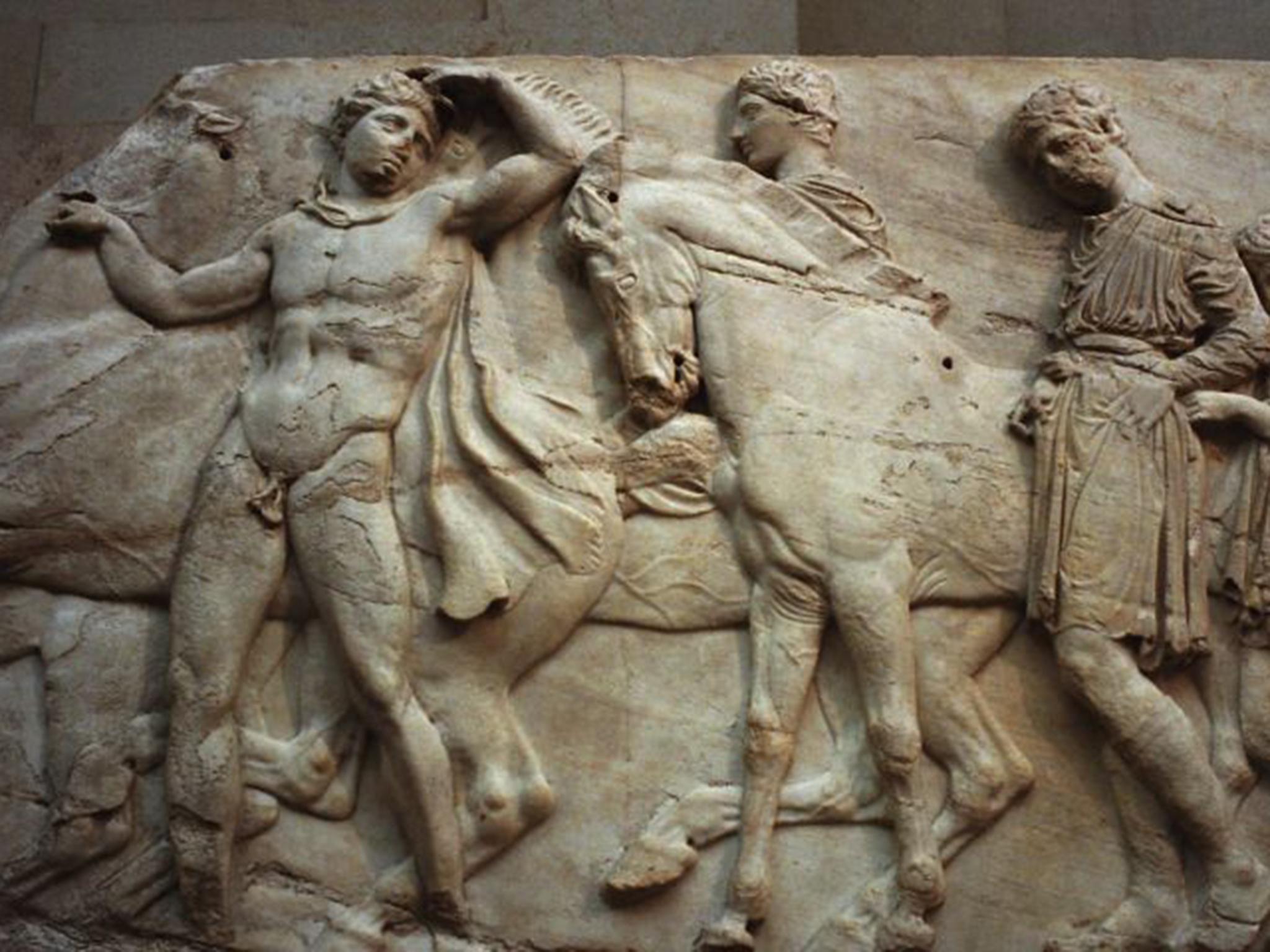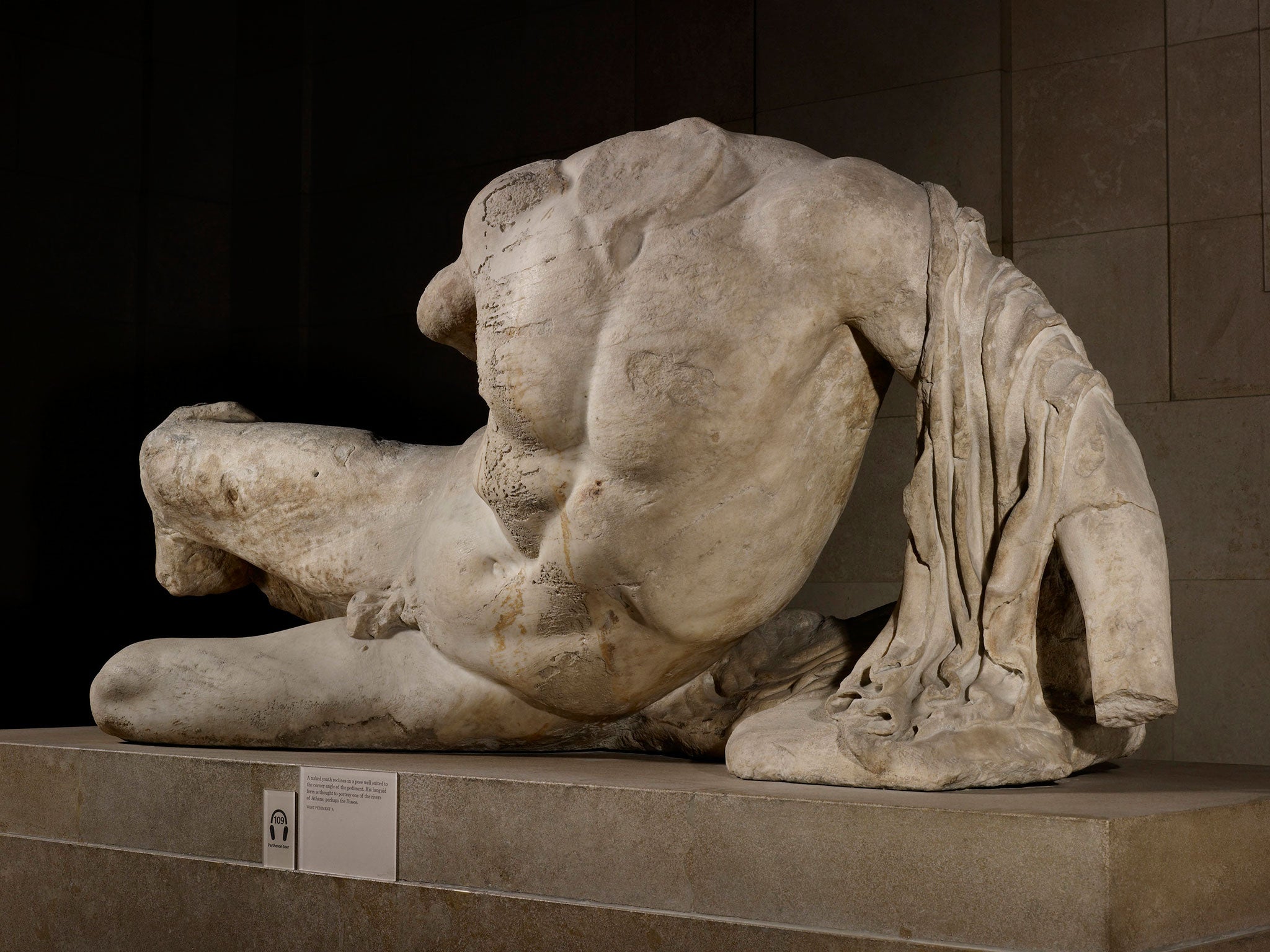Corbyn vows to return Elgin Marbles to Greece if he becomes prime minister
‘As with anything stolen or taken from occupied or colonial possession – including artefacts looted from other countries in the past – we should be engaged in constructive talks with the Greek government about returning the sculptures’

Your support helps us to tell the story
From reproductive rights to climate change to Big Tech, The Independent is on the ground when the story is developing. Whether it's investigating the financials of Elon Musk's pro-Trump PAC or producing our latest documentary, 'The A Word', which shines a light on the American women fighting for reproductive rights, we know how important it is to parse out the facts from the messaging.
At such a critical moment in US history, we need reporters on the ground. Your donation allows us to keep sending journalists to speak to both sides of the story.
The Independent is trusted by Americans across the entire political spectrum. And unlike many other quality news outlets, we choose not to lock Americans out of our reporting and analysis with paywalls. We believe quality journalism should be available to everyone, paid for by those who can afford it.
Your support makes all the difference.Jeremy Corbyn has pledged to give the Elgin Marbles back to Greece if he became prime minister.
The Labour leader said the marbles – also known as the Parthenon sculptures – belonged to Greece and that if elected, he would open talks on returning them.
When asked whether he would consider returning the long-disputed carved figures, Mr Corbyn stressed that they were “made in Greece, and that is where they were for thousands of years until they were taken”, the country’s Ta Nea newspaper reported.
“It is very clear to me that the Parthenon sculptures belong to Greece,” he was quoted as saying.
The Elgin Marbles, made in the 5th century BC, were removed from the Parthenon temple on the Acropolis in Athens by Lord Elgin, the then Ottoman ambassador, in the early 1800s. Since 1816 they have been housed in the British Museum.

Their status has long been hotly disputed. Greece, which for decades has called for their return, with several formal requests, has also in the past threatened legal action and proposed solutions such as mediation by Unesco.
Lord Elgin insisted he had permission to take the sculptures, saying he had the permission of officials of the ruling Ottoman empire, and that he was worried about their being damaged.
Opponents of their removal from London say that the move would pave the way for requests from other countries for artworks in British museums to returned.
Supporters of the Greek position argue that the Ottoman authorities were a foreign force and had no right to let the artefacts go.
Ta Nea reported: “In the exclusive interview given to Nea, Jeremy Corbyn agrees that, if elected, he will begin the return of the Parthenon sculptures to our country.”
Mr Corbyn reportedly said: “They were made in Greece and have been there for many centuries until Lord Elgin took them.
“As with anything stolen or taken from occupied or colonial possession – including artefacts looted from other countries in the past – we should be engaged in constructive talks with the Greek government about returning the sculptures.”
Mr Corbyn has long been a supporter of the marbles’ repatriation but this is the first time as party leader that he has made his intent so clear.
The UK government’s position is that the ownership of the sculptures is a matter for the trustees of the British Museum, according to a House of Commons briefing paper.
The British Museum website says: “The Acropolis Museum allows the Parthenon sculptures that are in Athens to be appreciated against the backdrop of ancient Greek and Athenian history. This display does not alter the trustees’ view that the sculptures are part of everyone’s shared heritage and transcend cultural boundaries. The trustees remain convinced that the current division allows different and complementary stories to be told about the surviving sculptures.”
It says the British Museum Act 1963 bans the trustees from permanently disposing of objects unless they are duplicates of others already in the collection or are “unfit to be retained ... and can be disposed of without detriment to the interests of students”.
A Labour spokesperson said Mr Corbyn was stating his long-standing personal view and that he was right to call for constructive talks.
Join our commenting forum
Join thought-provoking conversations, follow other Independent readers and see their replies
Comments